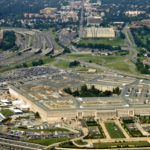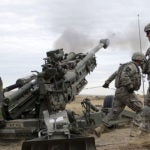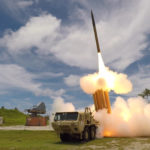
Carper Digging Deeper. Sen. Tom Carper (D-Del.), the ranking member of the Senate Homeland Security and Governmental Affairs Committee, has expanded his investigation into efforts by federal agencies and international banking organizations to better protect banks around the world following attacks on the Society for Worldwide Interbank Financial Telecommunications, called SWIFT. Carper on June 8 sent letters to Homeland Security Secretary Jeh Johnson and Bank of International Settlements General Manager Jaime Caruana seeking answers to questions and to brief staff on investigations into the SWIFT attacks and what is being done to safeguard against other potential threats. In May Carper sent setters to Federal Reserve and British banking officials on the actions they are taking to protect banks following reports in March of an $81 million cyber heist against the Bank of Bangladesh’s account in the New York Federal Reserve.
Lawyers and CISOs. A law incentivizing the voluntary sharing of cyber security threat indicators between private entities and between the private sector and federal government is giving corporate lawyers a “reason” to talk to the chief information security officers in their companies about what they are doing around information sharing with cyber threats and ultimately better enable this sharing, Paul Tiao, a partner specializing in cyber security issues for the law firm Hunton & Williams, says at a cyber workshop hosted by the Department of Homeland Security. He says this is useful because the lawyers in these companies find out there has already been a lot of information sharing going on but that it wasn’t protected as it could have been if “the lawyers had been involved.” The Cybersecurity Information Sharing Act provides liability protections to entice private entities to share cyber threat indicators with federal and other private groups. 
…Private Sector Challenges. In general, companies aren’t very “sophisticated” nor are they “as organized as they would like to be” in the area of cyber threat information sharing, Tiao says. “And so trying to make sure that they for vetting and sharing the right type of information, or doing it and marking it appropriately, for ingesting information from private entities or from the government and doing it in accordance with the requirements of the law, and do it in a way that we can actually utilize information, those are all operational challenges,” he says. Moreover, all companies, big and small, are “resource challenged in this area.”
NROL-37 Launch Delay. Poor weather on June 9 scrubbed the Air Force’s launch of a National Reconnaissance Office (NRO) satellite called NROL-37 from Cape Canaveral Air Force Station, Fla. The parties rescheduled the launch for June 11. Weather at press time June 10 was 40 percent chance of favorable weather conditions. United Launch Alliance (ULA) is the launch provider, using its Delta IV Heavy rocket.
Bigelow’s BEAM. NASA on June 8 completed outfitting operations on Bigelow Aerospace’s Expanded Activity Module (BEAM), Bigelow Deputy Program Manager for Beam Lisa Kauke says in an email. Kauke says the cover plate is closed and the sensors will continue to gather data on the module. The next astronaut ingress is tentatively scheduled for August. BEAM is attached to the International Space Station (ISS) for the next two years as a technology demonstrator.
USAF APKWS. The Air Force acquired BAE Systems’ Advanced Precision Kill Weapon System (APKWS) laser-guided rockets for ongoing operations in Iraq and Afghanistan, the company says in a statement. The service fields the initial units to fulfill an urgent operational need for F-16 and A-10 aircraft and uses the weapon on combat for the first time. The Air Force is acquiring its initial supply of rockets out of the current Navy inventory and is working with BAE Systems and the sea service to secure additional units.
Army Promotions. Army Chief of Staff Gen. Mark Milley promoted Maj. Gen. Stephen Fogarty to U.S. Cyber Command chief of staff, according to a DoD statement. Fogarty is currently commanding general of the Cyber Center of Excellence and Fort Gordon. Carter also promoted Maj. Gen. Cedric Wins to U.S. Army Research, Development and Engineering Command (AMRDEC). Wins is currently director of force development for Office of the Deputy Chief of Staff G-8.
Air Force Promotions. President Barack Obama nominated Air Force Lt. Gen. Tod Wolters as general and commander of U.S. Air Forces Europe, Air Forces Africa, Allied Air Command and director of the Joint Air Power Competence Center, according to a DoD statement. Wolters is currently director for operations, J-3, Joint Staff. Obama also nominates Air Force Maj. Gen. Jeffrey Harrigian as lieutenant general and as commander of U.S. Air Forces Central Command. Harrigian is currently director of the F-35 Integration Office.
Orbital ATK Antares. Orbital ATK is setting the debut launch of its re-engined Antares for no earlier than July 10, according to company spokesman Barry Beneski. The mission will also be a Commercial Resupply Services (CRS) mission for NASA. Antares has been out of service since a late 2014 launch failure. It has since been re-engined with a NPO Energomash RD-181.
Falcon 9 Re-Flight. Space Exploration Technologies Corp. (SpaceX) is aiming for the first re-flight of a used Falcon 9 first stage in the September/October timeframe, company founder Elon Musk says on Twitter. The company has launched and landed four separate first stages, the most recent on May 27. Its next launch is set for June 14. SpaceX believes a fully and rapidly reusable rocket is the pivotal breakthrough needed to substantially reduce the cost of space access. The majority of the launch cost comes from building the rocket, which flies only once.
SECDEF to NATO. Secretary of Defense Ash Carter travels to Brussels to participate in his fourth NATO defense ministerial as Secretary of Defense June 13 – 15. Defense Daily reporter Dan Parsons is on the trip with Carter, covering the meeting with allies that will cover a range of issue in preparation for the biannual NATO summit in Warsaw in July. The agenda includes efforts to reassure U.S. allies and partners in the face of Russian aggression, NATO contributions to the counter-ISIL campaign, U.S. efforts in Afghanistan, and the NATO’s common approach to a number of other shared threats.
… Personnel Proposals. Carter last week rolled out the next few prongs of his Force of the Future initiative, which is a broad effort to improve the Pentagon’s recruitment and retention of talent. He proposes changing the traditional “up-or-out” officer-promotion system, the Defense Officer Personnel Management Act (DOPMA) by authorizing the services to establish policies to determine rank order for promotions based upon an individual’s superior performance, instead of promoting based on the date which the officer was initially commissioned; providing the option for an officer to defer when they are considered for a promotion, giving officers and the services flexibility to pursue career-broadening opportunities that benefit the force without jeopardizing their career progression; allowing the services expanded flexibility to bring officers in specialized fields like cybersecurity at ranks that match their skill and experience, an authority that now exists for medical specialists and providing enduring flexibility for the services to adjust DOPMA-based policies to accommodate future unforeseen needs and challenges.
… Will Live On. Carter, speaking at the Defense One 2016 Technology Summit on Friday, said he will continue to serve until asked to leave, but demurs when asked if he plans to stay on into the next administration. His proposals–particularly personnel changes and outreach to the private technology sector–should gain congressional support and outlive his tenure if implemented permanently. “We really thought hard about these things. We took months and years working through them and they are considered proposals by the people they have charged with running the Department of Defense and I think we need to respect the collective judgment of the leadership of the Department of Defense,” Carter said. “I’m working for President Obama, every day that he is president, as long as he wants me to. I am confident, though that the ideas that we have been talking about today make so much sense that they’ll continue in the future. This is necessary. Everybody gets it. Everybody gets the logic of it and so I’m confident that when I’m gone or any individual leader is gone, these things are going to continue because they make so much sense.”
Space Debris Grant. NASA awarded the Aerospace Corporation a grant to investigate the possibility of developing a very thin spacecraft to wrap around space debris and remove it from Earth orbit, called Brane Craft. The concept spacecraft size is 1-meter square and also less than half the thickness of a human hair, 30-microns. The Brane Craft would only weigh about 50 grams. The spacecraft would have a very high thrust-to-weight ratio and be capable of traveling long distances.
New Airbus CTO. Airbus Group appointed Paul Eremenko as the new Chief Technology Officer (CTO. Eremenko previously headed the company’s A3 Innovation Center based in San Jose, Calif. An aeronautics and astronautics engineer, he has previously worked at Google, Motorola, and DARPA. He assumes the new role on July 1, 2016. In the new position, Eremenko joins Andy Anerson, who serves as acting CTO since previous CTO Jean Botti departed in March 2016. Anderson will resume his role as Chief Operating Officer (COO) for the CTO organization and as deputy CTO.
DISA ViaSat Contract. The Defense Information Systems Agency (DISA) awarded ViaSat Inc. a non-competitive firm-fixed-price contract worth cumulatively $73 million to provide senior leaders and their support staff with Ku-band and Ka-band communication utilizing ViaSat subscription service while traveling via aircraft. The contract has a face value of $33 million funded by Fiscal 2016 operations and maintenance funding. Proposals are originally solicited via electronic means with one proposal received. Contract performance is to primarily occur at the ViaSat Carlsbad, Calif., location, Denver Networks Operation Center, and government care centers. The period of performance is June 1, 2016 through May 31, 2017 with two six-month option periods. The contracting activity is the Defense Information Technology Contracting Organization at Scott AFB, Ill.
Navy Cyber Appointment. President Obama nominated Navy Rear Adm. Michal Gilday for appointment to the rank of vice admiral and for assignment as commander of Fleet Cyber Command and the 10th Fleet, based out of Fort Meade, Md. Gilday currently serves as director of operations J-3 at U.S. Cyber Command. Gilday’s appointment succeeds Vice Adm. Jan Tighe, who was previously picked to become the next deputy chief of naval operations for information warfare (N2/N6). Tighe was confirmed by the Senate on May 26 but does not change posts until a successor is in place and they can have direct turnover discussions.
…And Army Too. The Army chief of staff announced the assignment of Maj. Gen. Stephen Fogarty as chief of staff of U.S. Cyber Command at Fort Meade, Md. Fogarty currently serves as the commanding general of the Cyber Center of Excellence and Fort Gordon, Georgia.
SEC Cyber. The Security and Exchange Commission (SEC) named Christopher Hetner Senior Adviser to the Chair for Cybersecurity Policy. In the role Hetner serves as a senior adviser to SEC Chair Mary Jo White on all cybersecurity policy matters. He is also responsible for coordinating efforts across the agency to address cybersecurity policy, engaging with external stakeholders, and enhancing the SEC’s mechanisms for assessing broad-based market risk. Hetner currently serves as the Cybersecurity Lead for the Technology Control Program in the SEC’s Office of Compliance Inspections and Examinations (OCIE). He originally joined the SEC in January 2015. Previously, Hetner led the Wealth and Asset Management Sector Cybersecurity practice of Ernst and Young for over two years and was Chief Information Security Officer at GE Capital for over four years.
Biometrica CEO. The Board of Biometrics appointed board member Wyly Wade as the company’s new CEO and president. Wade has advised the company for two years and has worked with private security organizations and government agencies in several countries on biometrics, benefit delivery, identification, and security issues. Wade was previously known for public cybersecurity work including permission to hack into the Federal Reserve on live television in 1997. Wade also earlier served as CTO of Holliston, a U.S. passport maker.

 By
By 











